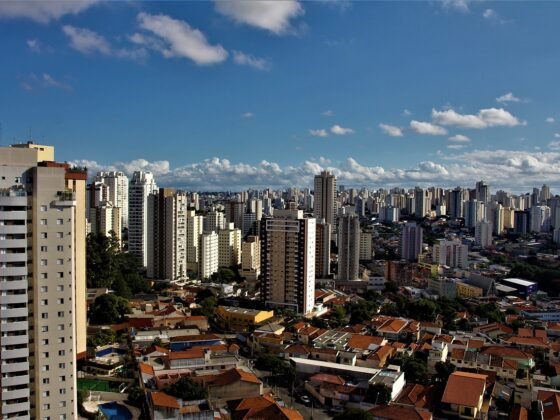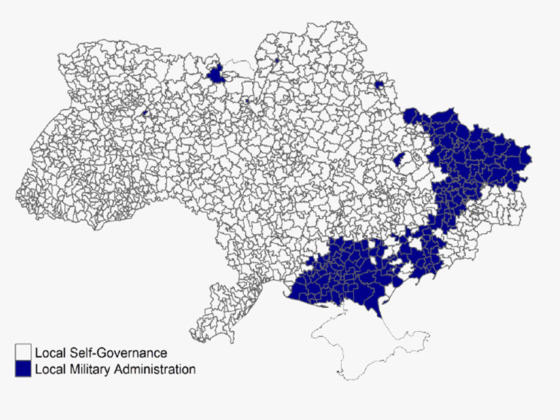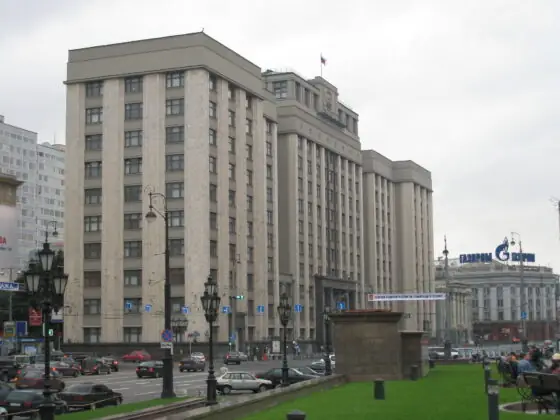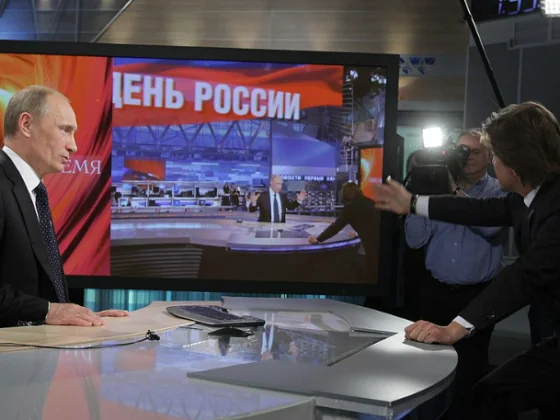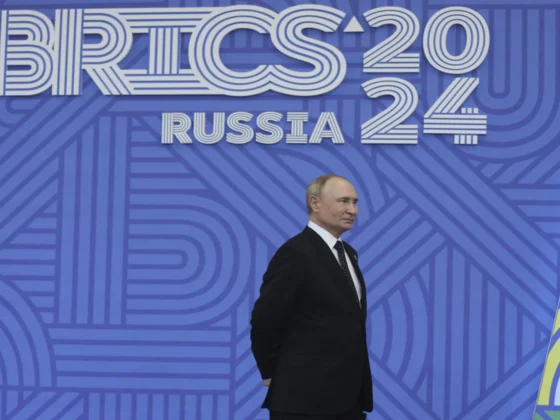Chechen leader Ramzan Kadyrov is central to both Chechnya’s repressive political system and Russia’s control of the republic. Yet long-term rumors about his health and potential succession planning suggest that the Kremlin may be forced to confront the question of what comes after Ramzan sooner rather than later. Indeed, as Ramzan’s physical appearance has visibly deteriorated in the last few years and he has absented himself from public view, it has fueled speculation that replacements are already under consideration. In April 2024, Novaya Gazeta again reported on his extensive health issues, claiming that he suffers from pancreatic necrosis and was placed in an induced coma in 2023.
There are three plausible scenarios for a leadership transition in the republic. First, the Kremlin and the current Chechen elite might fail to control the succession process, leading to uncertainty as the current system is dismantled. Second, the Kremlin might, as it has in Dagestan, appoint an outsider to the republic’s top job, although this would lay bare the imperial nature of Russian governance. Third, and likely the Kremlin’s preferred approach, Moscow might look within the existing Chechen system for a successor who could minimize risk by maintaining the status quo. Of the five men often mooted as potential successors, I argue that Ramzan’s close ally and State Duma Deputy for Chechnya Adam Delimkhanov is best positioned to balance local and federal interests and ensure a successful transition—either as heir himself or as the kingmaker whose support will be required by the successful candidate.
The Centrality of the Kadyrovs to Russian Control over Chechnya
Leadership change in Chechnya poses significant risks to Russia. Russian President Vladimir Putin made the Kadyrov family a central pillar of his efforts to subordinate Chechnya in 1999, when Chechen Mufti Akhmat Kadyrov defected from the separatist side at the start of the Second Chechen War. It was Akhmat who laid the foundations for the current regime. Following his assassination in 2004, power was eventually transferred to his son, Ramzan, who has occupied the top role since 2007. During his tenure, Ramzan has built an extensive loyal security force initially comprised of fellow defectors, eliminated potential rivals, repurposed Chechen tradition to bolster his own legitimacy, and built a cult of personality around the memory of his father. The result has been a highly personalized and repressive regime that exists largely outside the Russian legal space.
The Kadyrovs’ power has been premised on a simple deal with the Kremlin: The Chechen authorities have carte blanche to do whatever they want in—and often beyond—the republic, provided that insurgent violence is contained and Chechnya remains part of the Russian Federation. Ramzan has enacted this deal by suppressing dissent and using extensive funds from the federal budget to enrich himself and his allies, while repeatedly professing his fidelity to Putin and supporting key Russian policies.
While the Chechen regime is more than just Ramzan—it comprises a complex network of relatives and allies spanning local and federal political, economic, and security structures—he remains its central figure. Replacing him would necessitate a reconfiguration of relationships that would reverberate well beyond the republic. Chechnya has, after all, helped shape post-Soviet Russia, providing models for Russian imperial governance and the country’s approach to warfare. It plays an outsized role in Russian domestic and foreign policy, and the re-emergence of insurgency there could fuel similar tendencies elsewhere in the North Caucasus. In short, the consequences of success or failure in managing regime transition in Chechnya are unlikely to be confined to the republic.
Preserving the Current System Poses Fewer Risks to the Kremlin
There are obvious difficulties in predicting a post-Ramzan future. The decision-making processes of Kremlin and Chechen elites are opaque, creating the information vacuum that fuels recurrent speculation. It is also an inherent feature of authoritarian regimes that obvious replacements are eliminated as threats to the incumbent. In this regard, the question of what comes after Ramzan is as unanswerable as that of what comes after Putin. Nevertheless, it is possible to identify three plausible scenarios for transition.
Scenario One: Uncontrolled Transition
There is no guarantee that either the Kremlin or the Chechen elite will be able to control the succession process. Uncontrolled transition could take accommodationist or secessionist forms. In the former, someone could emerge to rival a nominated successor, or else the Kremlin could decline to select a successor and instead wait for a victor to emerge from an intra-elite struggle. Either way, the new leader would ultimately need to strike a new deal with the federal authorities. In the latter, a leader would emerge through armed resistance to Russian hegemony. Both forms involve dismantling the current system and would be accompanied by uncertainty and instability.
The outcome of this scenario is impossible to predict: Its evolution would depend on its origins and main protagonists. But it also appears unlikely. There is no organized insurgency within Chechnya capable of driving secession, nor are there obvious candidates with a power base independent of the existing elite. The risks of encouraging an intra-elite struggle would be incalculable for the Kremlin.
Scenario Two: An Outsider Appointment
In 2021, the Kremlin appointed Sergey Melikov, a Stavropol native with a security service background, as head of Dagestan—the second successive outsider appointment in the republic. The Kremlin could adopt a similar strategy in Chechnya. This would undoubtedly appeal to those who would like to end Chechen exceptionalism and increase federal control over the republic. Yet this, too, is a high-risk strategy, as there are no guarantees that an outsider could command sufficient support among local elites. More importantly, it would erase a key component of Russia’s strategy since the Second Chechen War: transforming the conflict from a Russian-Chechen one to a Chechen-Chechen one. An outsider appointment would lay bare the imperial nature of Russian governance and bolster separatist narratives.
Scenario Three: An Insider Appointment
Instead, the Kremlin could look within the existing Chechen system for a successor. This would not increase federal control, but it would avoid the risks that would accompany systemic change. The Kremlin has never demonstrated concern about what happens within Chechnya, allowing extensive abuses of human rights and power to go unpunished. Successful transition depends on finding a leader who enjoys sufficient authority in Chechnya, can neutralize potential rivals, and is capable of balancing federal and local interests. Yet any actor capable of suppressing challenges and establishing hierarchical control could, over time, morph into a Ramzan-type figure. In other words, the Kremlin may find it difficult to avoid replicating some version of the system that it has already created in Chechnya, unless it is willing to relinquish at least some of the control it exercises over the republic. The status quo serves the interests of both the Kremlin and the current Chechen elite, so maintaining it represents the easiest and lowest-risk option.
Delimkhanov’s Advantage over His Rivals
If an insider appointment is both most plausible and most susceptible to analysis, who are the potential candidates? Alongside Ramzan’s children, Akhmat and Adam, three individuals are frequently identified as the most influential people in Chechnya: Delimkhanov, Chechen Prime Minister Magomed Daudov, and Chechen Deputy Prime Minister Abuzayd Vismuradov. Analysis of their experience and relationships suggests that of these five, it is Delimkhanov who is best positioned to navigate the transition process.
Akhmat and Adam Kadyrov
Among Ramzan’s many children, Akhmat Kadyrov Junior and Adam Kadyrov are mentioned most frequently as potential heirs. Indeed, Chechen state media’s promotion of both has fueled speculation that they are being positioned as such. In October 2022, Ramzan posted a video on Telegram showing both young men “participating” in Russia’s “special military operation.” In March 2023, Akhmat Junior met with Putin in Moscow, leading observers to draw parallels with Putin’s famous meeting with a track-suited Ramzan following Akhmat Senior’s death. More recently, Adam has been showered with awards and appointments and attracted controversy for beating a prisoner in police custody.
Akhmat Junior and Adam face the same problems as heirs. Akhmat is only 18 and has, since May 2024, served as Chechen Sports Minister. Adam is even younger and more inexperienced at 16, even if he has been simultaneously appointed to various security roles. Both lack access to support networks outside their families. Adam Kadyrov’s relationships, for example, are dominated by relatives and do not extend beyond the republic:
Source: The interactive graphics throughout this memo draw on open-source reporting to provide additional information about these actors’ networks. Clicking on a connection will provide information about the nature of the relationship between actors and, where appropriate, basic source (full sourcing information is available at Threatologist.com). Clicking on a node will reveal information about an actor’s role at the time of the reported relationship. Relationships have been mapped using Kumu, a tool for visualizing and exploring relationships.
Both Akhmat Junior and Adam are the epitome of “TikTok generals.” Neither possesses the political weight to force a claim to power, and they would depend on the acquiescence of other members of the elite to rule. This does not preclude either from being appointed but means that true power would lie elsewhere, at least in the short term. In the long term, they could grow into the role and consolidate their authority, much as Ramzan did after his father’s death. That comparison points to another challenge that the Kadyrov children would need to overcome: In 2004, Alu Alkhanov occupied the Chechen presidency because Ramzan was not yet 30—the age an individual must attain to legally hold the role.
Magomed Daudov
Magomed Daudov is far more experienced than Ramzan’s children. Having come over from the separatist side to support Akhmat Senior, he has established himself as a key figure in the Chechen regime. He started his career within the Chechen Interior Ministry before assuming a more political role and eventually becoming parliamentary speaker in 2015. In May 2024, he moved across to the role of Chechen Prime Minister. He holds the rank of Interior Ministry major-general and has been sanctioned by the United States and United Kingdom for his role in human rights abuses.
Daudov’s reported relationships are also more extensive, spanning the Chechen political and security apparatus:
At the same time, these relationships reveal an important weakness that could undermine his credentials. Daudov does not have any relatives or known allies who occupy strategically important positions in state or security service bodies, nor does he have strong ties outside the republic. Per local journalist Maaz Bilalov, “there are not clearly defined political or other forces on which he could rely.” This may make him a more controllable figure in the eyes of the federal authorities, but it would also make it harder for him to balance divergent interests or assert control.
Abuzayd Vismuradov
Abuzayd Vismuradov rivals Daudov in experience and influence. He has spent most of his career within the Chechen Interior Ministry, rising to become commander of the Terek Special Rapid Response Unit that guarantees the security of Chechen state officials. In early 2020, he became deputy prime minister responsible for the security bloc. Although prominent within Chechnya, he is not as well-known beyond its borders.
Vismuradov’s relationships are more diversified than Daudov’s:
This offers him two potential advantages. First, he has known allies in strategically important positions and his ties to the Chechen security services are more current than Daudov’s. For example, his brother Abukhusayn is a Chechen MP and he is reportedly close friends with Chechen Interior Minister Aslan Iraskhanov. Second, he has more extensive ties outside the republic. These, however, are largely limited to the world of mixed martial arts (MMA), which the Chechen regime has actively exploited.
Adam Delimkhanov
Adam Delimkhanov is the second most-recognizable Chechen official and a close ally of Ramzan. He is often mistakenly referred to as Ramzan’s “cousin” and has previously been identified by Ramzan himself as a potential successor. Delimkhanov has represented Chechnya in the State Duma since 2007 but rarely involves himself in legislative activities. Instead, he has repeatedly been implicated in the murders of Chechen regime critics and rivals and has played a prominent role in Chechen security service operations in Ukraine.
Delimkhanov boasts the most extensive relationships of those profiled here, reflecting the extent of his involvement with the current regime:
These relationships demonstrate two key advantages that Delimkhanov enjoys over Daudov and Vismuradov. First, his connections across the political and security elites are more extensive and durable, with relatives who occupy important positions. One brother, Sharip, heads the Chechen branch of the National Guard, while another, Alibek, is deputy commander of the National Guard’s North Caucasus District Troops. Second, and reflecting his current role as a Duma deputy, Delimkhanov’s ties outside Chechnya are far more extensive. Delimkhanov therefore boasts a power base that any rival would need to contend with and is well-positioned to control the transition process and balance competing interests. Were he not to be chosen as Ramzan’s heir, he would still be the most important figure whose influence would need to be taken into account in order for a transition to be successful.
Conclusion
Chechnya may soon face the question of succession, and the success or failure of the republic’s leadership transition will have major implications for local, regional, and national security. Of three plausible scenarios for a post-Ramzan Chechnya, a managed transition to another member of the current Chechen elite poses the least risk to the Kremlin. Adam Delimkhanov represents the candidate with the most experience and the most extensive and robust networks within and beyond the republic, and is therefore best placed to balance competing and conflicting local and federal interests. Indeed, unlike his potential rivals, he has already demonstrated his ability to operate at the federal level; while this has not been without tension, he may be the devil that the Kremlin feels it knows best. If the current system is to persist beyond Ramzan, Delimkhanov will have a critical role to play—either as Ramzan’s direct heir or as the person whose influence other claimants have to take into account.
Mark Youngman is the founder of Threatologist, a consultancy that provides bespoke research reports on Russia and Eurasia.


